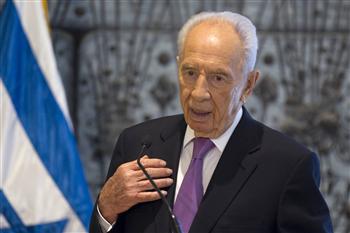In order to be able to discuss sustainable development in Egypt, we must first be in agreement as to what sustainable development means. The scientific and international concept of sustainable development can be defined as development that meets the current needs of humans without compromising the ability of future generations to meet their own needs. It focuses on the integrated and sustainable economic growth under environmental supervision and social responsibility.
In other words, sustainable development is the process of developing land, cities, and communities, as well as business, on the condition that they meet the needs of the present without affecting the future generations’ ability to fulfil their needs.
The Brundtland Report, issued by the World Commission on Environment and Development (WCED) in 1987, also known as “Our Common Future”, has defined sustainable development as “the kind of development that meets the needs of the present without compromising the ability of future generations to meet their own needs.”
The Food and Agriculture Organization of the United Nations (FAO) defines sustainable development, adopted in 1989, as follows:
“Sustainable development is the management and protection of natural resources and directs the technical and institutional change in a manner that ensures the continued satisfaction of human needs of current and future generations. The sustainable development (in agriculture, forestry, and fishery resources) protects the land, water, and genetic sources of plant and animal, and does not harm the environment. It is also technically and economically appropriate, and socially acceptable.”
It is clear that sustainable development is “a comprehensive concept linked to the continued growth of economic, social, institutional, and environmental aspects in the community.”
According to the Human Development Report issued by the United Nations Development Programme (UNDP), “men, women and children must be the centre of attention—with development woven around people, not people around development.” This approach will help make more sense of our environmental concerns, and propose a world clear of poverty, inequality, selfishness, the looting of nature, and the deviations of scientific progress, so as to allow the present and future generations to benefit from the natural resources.
Unfortunately, Egypt applies the opposite of that concept. The Egyptian government is interested in developing facilities and ignores humans. There is a deliberate negligence, as the education system neither meets our needs nor even is linked to the labour market within or outside Egypt. We also lack the slightest care for the health of Egyptians.
In addition, when the state decided to care about the preservation of its territory, it has dealt with people as a merchant and entered in a feverish race against land dealers and real estate developers to raise prices. It will lead in the near future to a decline in sustainable development. The Commission to Recover State Looted Lands committed the same mistake. Despite the great effort exerted by that commission, it suffers from deceleration in resolving issues. Out of intense fear of wasting the rights of the state, the commission overvalued the land which made many change their opinion about the commission and retreat from legalising their lands.
People, Egypt is a developing country and to achieve development we should think with the mentality of development, not trade. We should not be bothered by those who assign blame but know very little of land. President Abdel Fattah Al-Sisi made the right decision when he ordered the Supreme Council for Investment to allocate lands in the industrial zones in Upper Egypt for free.
More than 92% of Egypt’s land area is not used, at least 40% of which is suitable for all uses. Then, why do we exaggerate the price of land and why does our sustainable development not focus on people? To be continued.




